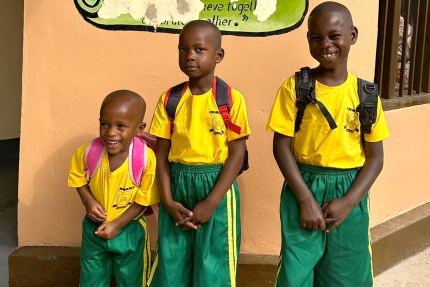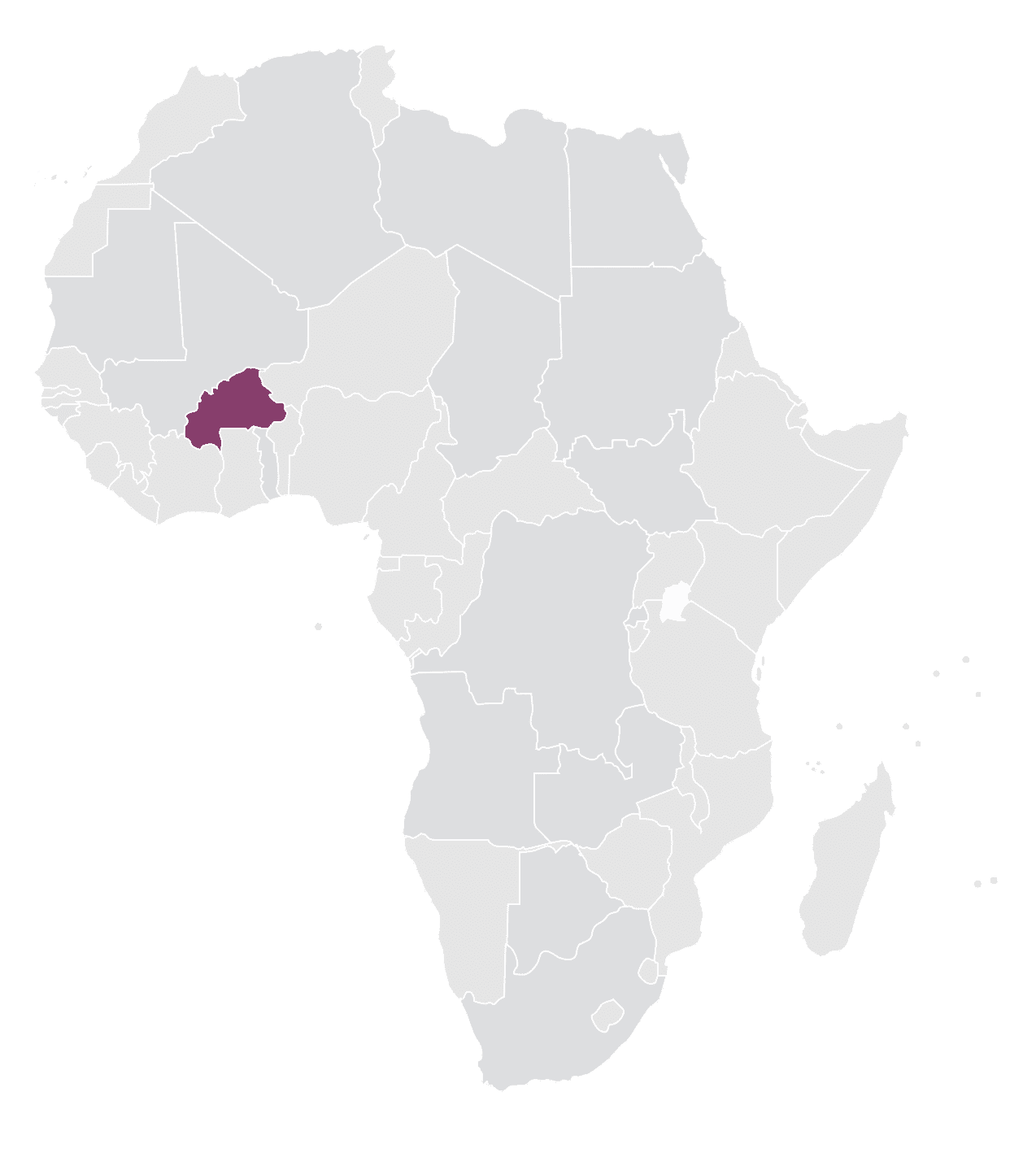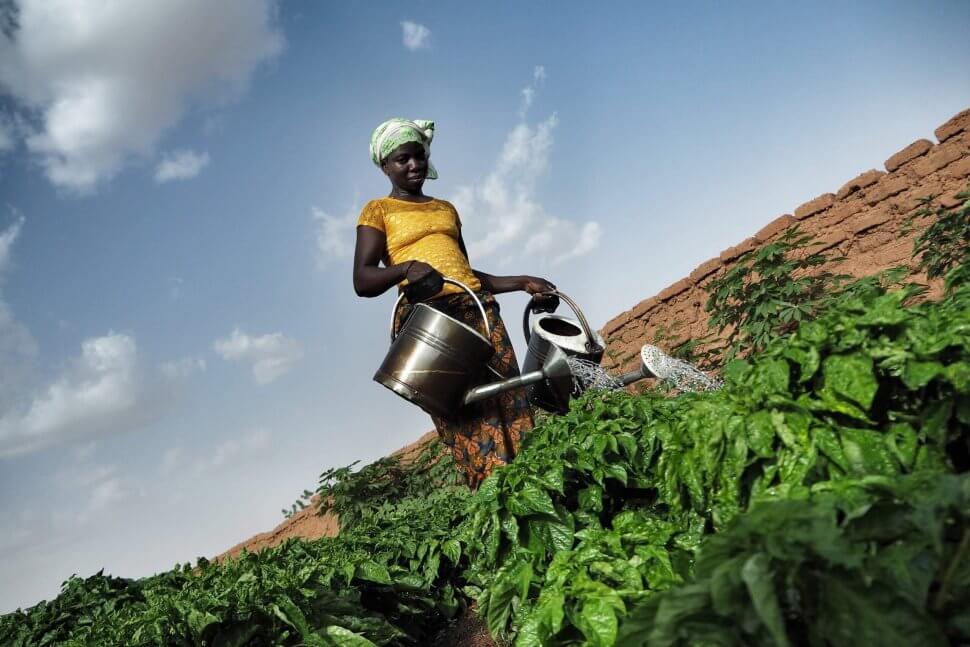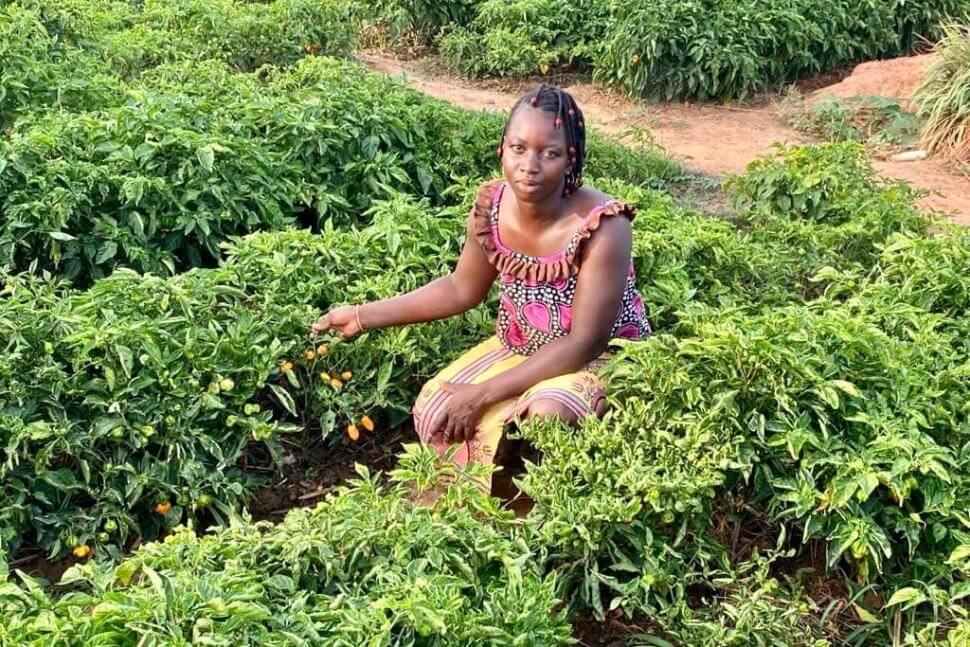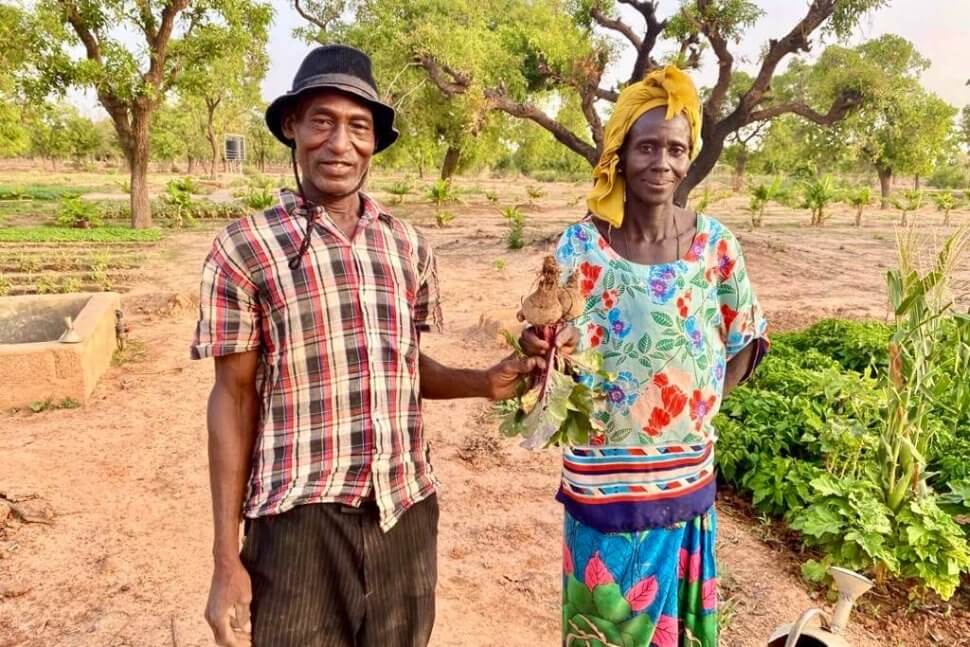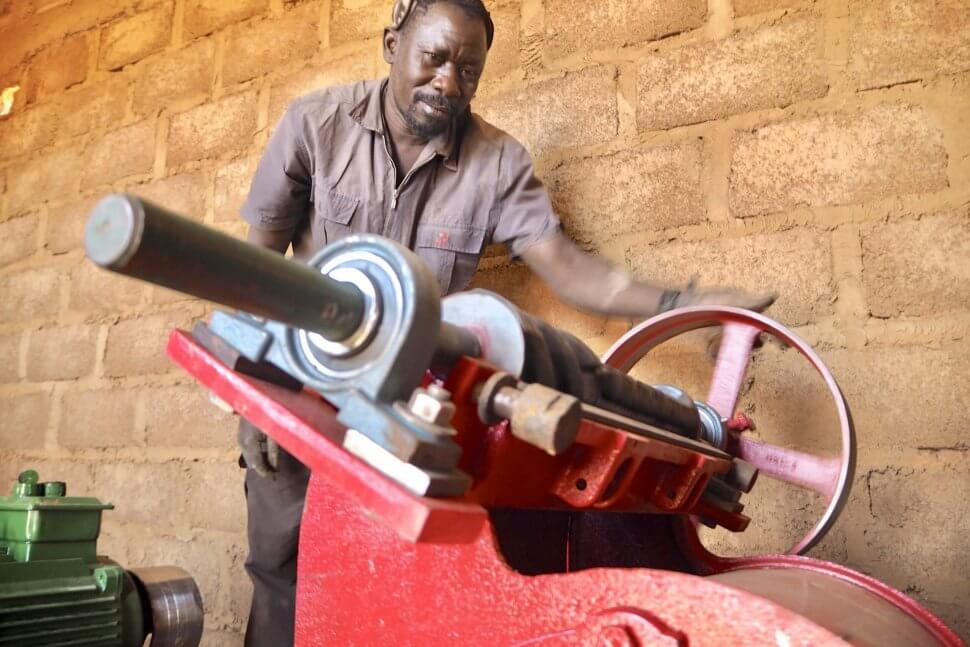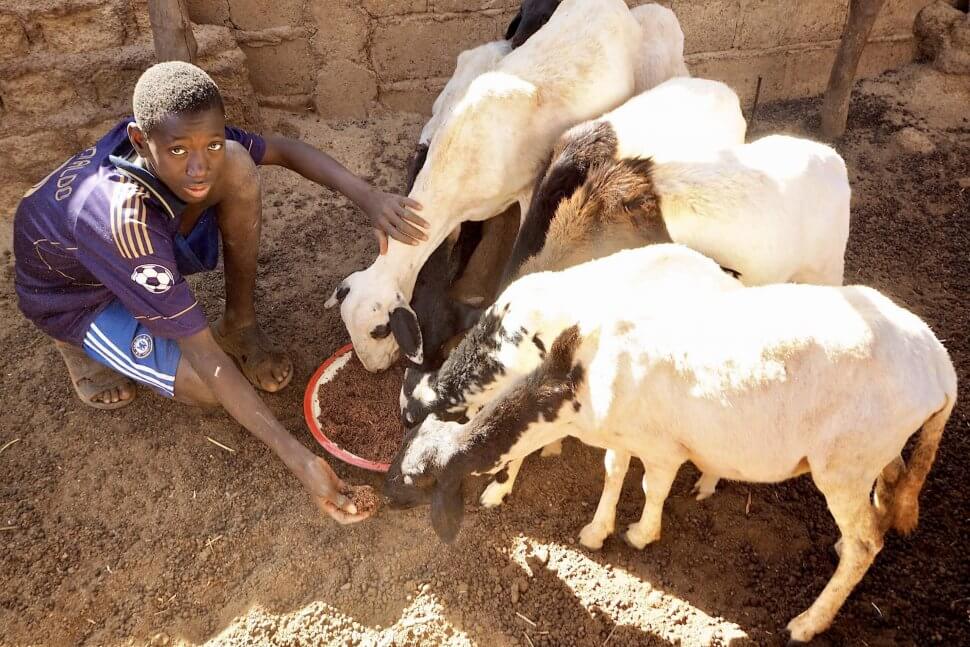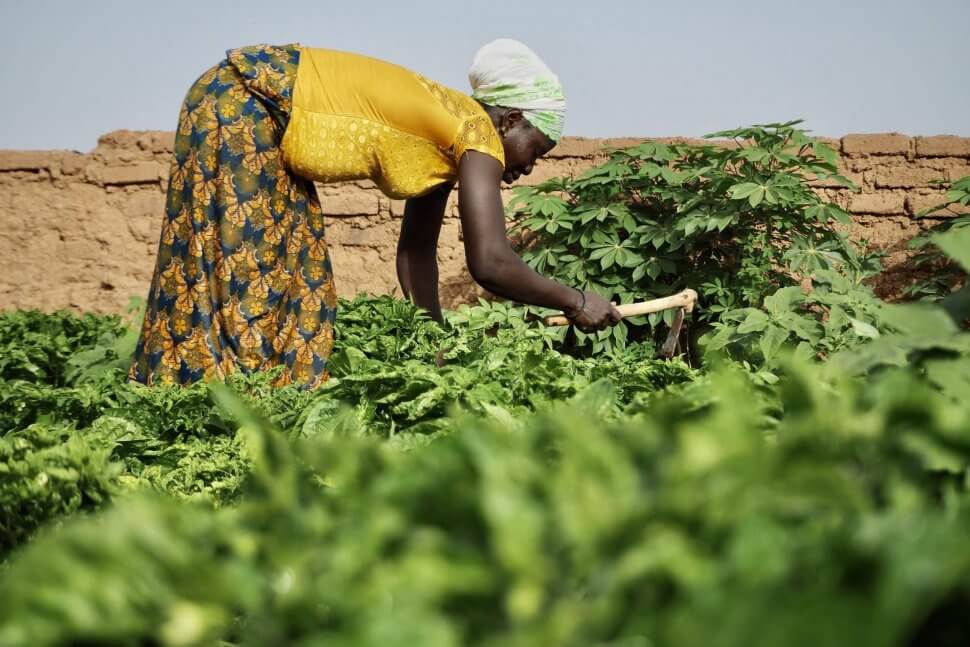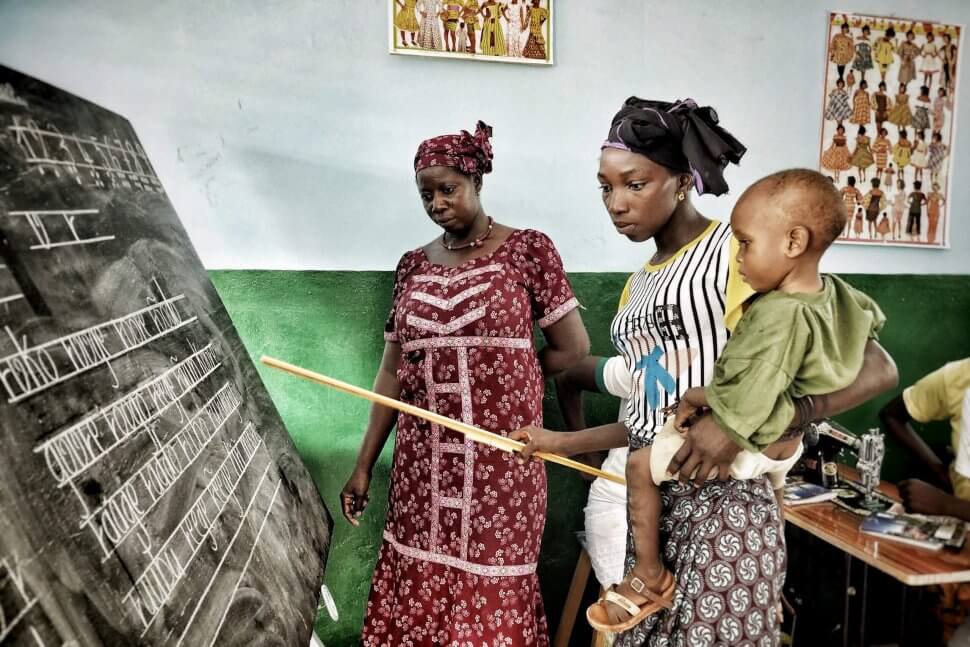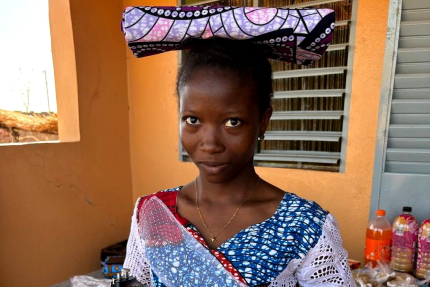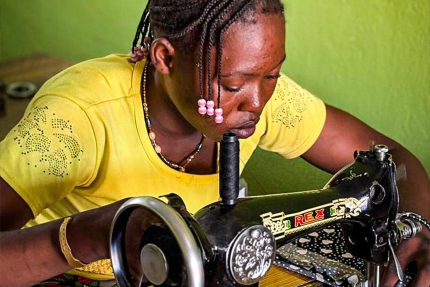Gourcy is flourishing thanks to the gardens
The village of Gourcy in the north of the country has been developing for several years under the umbrella of the Good Factory. To say developing is an understatement! Ever since we decided that a feasible form of help for the inhabitants of these now almost desert surroundings would be not only financial support, but also learning to be entrepreneurial, Gourcy has been thriving.
But let’s take it one step at a time. In 2016, the Good Factory funded agricultural machinery and the construction of a flour mill for the village. We hit the jackpot: interest in the mill was huge. Before that, no one had expected that the biggest worry of a miller would be taking one day off per month. Thanks to the mill, life in Gourcy has changed significantly. The families that are part of our project don’t have to buy flour, and what’s more, they can sell it themselves, thus mending their household budgets. Nshima in Zambia and Tô in Burkina Faso is maize flour cooked in water: a staple diet in African cuisine. The cooked, thick porridge is served with sauces made of gombo, baobab, tomatoes, soumbala, cucumbers, beans or local spinach. The families in our project already have peace of mind: they can fill their pots with flour from their own grain. The first dream has come true!
In order to provide something to grind in the mill, not just for their own needs, the Good Factory bought sesame seeds, lots of them, which the families from the project used to sow their fields. We also bought animals for the first families, provided them with seeds and tools to cultivate their home gardens. Each of the households knew that the principle of the project was very simple: today they receive something for free, they have to take care of it and multiply it, so that after a year they can share it with other families. The residents, who were once helplessly looking for work and jobs, now have their hands full. We already have over 60 families in the project.
These are the people whose lives have become the most complicated, who find it difficult to make ends meet and who are faced with dramatic decisions: whether to pay for food or for their child’s school. Whether to stay in the country or to flee.
Gourcy also has numerous sewing workshops
We have funded a sewing workshop for women who, for health reasons, could not commit to working in the fields. They are trained by a master tailor from the capital, Ouagadougou, whom we invited to join us and who agreed to run sewing courses three times a week. The three-year course ends with an exam and a diploma that allows the women to run their own tailors’ shops.
Three years ago, we went one step further. In response to the problem of climate change, the rain season getting shorter every year and the desertification of the Gourcy area, we funded a garden with an area of 3 hectares. We constructed eight wells, two of which are boreholes. From these, solar-powered pumps channel the water into a professional irrigation system that minimises the loss of water, which in this part of the world is more precious than gold.
Help for over 60 families
What the Good Factory is doing at the moment for more than 60 families who are involved in the project is no longer just handing out starter packs of grain and animals, building enclosures and covering the costs of veterinary care. It is also organizing important ventures for the village, which bring new products to the local market, improve the diet of the inhabitants, and steadily develop their business. In addition, the money they raise in the mill, sewing workshop and vegetable garden raises funds from which they will be able to reap further benefits by qualifying for micro-loans: a very tangible means for developing their farms. The local community will thus profit further from its own resourcefulness.
The economic situation in Burkina Faso is in a dire state. Refugees who decide to cross the Sahara are regularly detained off the Spanish coast. A few weeks ago, photographs of small children being pulled out of the sea shocked the world. These families are embarking on a deadly journey not in order to have a better life, but to survive at all. The villagers’ chances for development and a better existence are severely limited by the climate and the persistent drought. In recent months, daytime temperatures have been fluctuating around 50 degrees Celsius. It is not a comfortable place to live, but for the inhabitants of Gourcy, it is home, tradition and land handed down over generations. They don’t want to move anywhere. Thanks to the Good Factory, they don’t have to.
Aristide’s dream
The project is successful, good is flowing in, and Aristide is a perfect example. The boy, abandoned by his parents who had drastically complicated their lives, was taken into the care of his grandparents. To prevent the ambitious young man from following in the footsteps of his parents, he was given animals and grain by the Good Factory. For years, he worked on the farm, spending every spare moment studying books and investing the money he earned in education. Last year, he finished high school with honours and fulfilled his biggest dream by getting accepted to study medicine at the University of Ouagadougou. The boy has another big dream, which, so as not to twist his words, we will simply quote:
“I dream of being a good person, as good as all those people whom I have never met, who are somewhere far away from here yet help me completely selflessly.”
How, thanks to your support, this small village in the north of Burkina Faso is changing confirms the principle that for evil to triumph, all it takes is for good people to do nothing, and for good to triumph, all it takes is one small, good gesture. The simple mechanism of kick-starting the local economy in Gourcy has put a smile on people’s faces. Are they happy? As never before.
What do they need most today? Water, which is getting scarcer every year. Temperatures are soaring and without investing in new irrigation solutions, the weather could eventually defeat us.
You too can help change lives
Gosia Tomaszewska, who supervises the project in situ in Burkina Faso, asks us to help dig another borehole in the new part of our garden. The detailed cost estimate she has drawn up with experts amounts to 75,000 PLN. It is a lot, but the price already includes an efficient pump and solar panels which will help us acquire water in an ecological way, without harming the environment, which has already suffered enough. 75 thousand zlotys means 7 500 people who today will reach for 10 PLN from their wallets and turn them into life-giving water. There are almost 10 times as many of us here, so we strongly believe that we will succeed on time!
